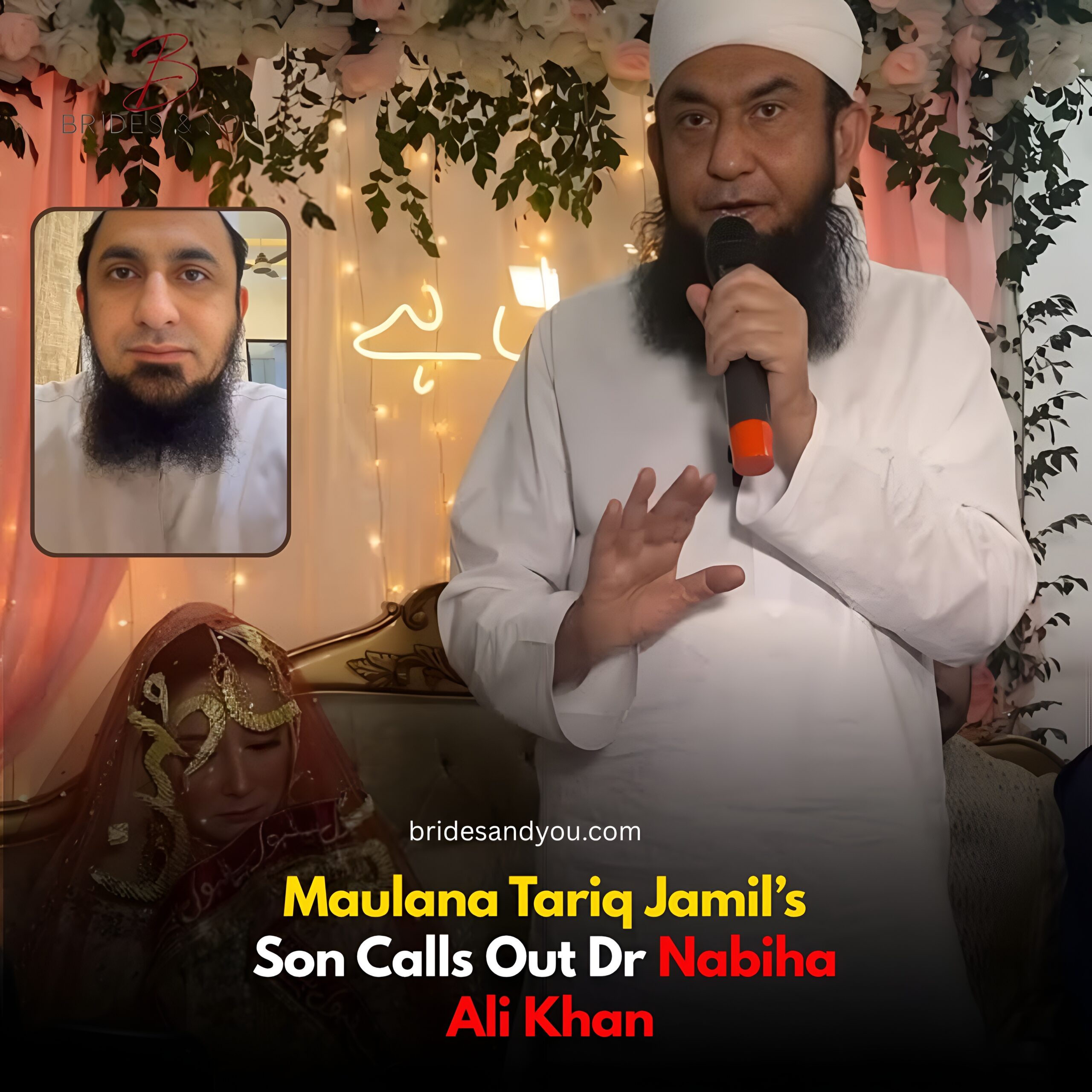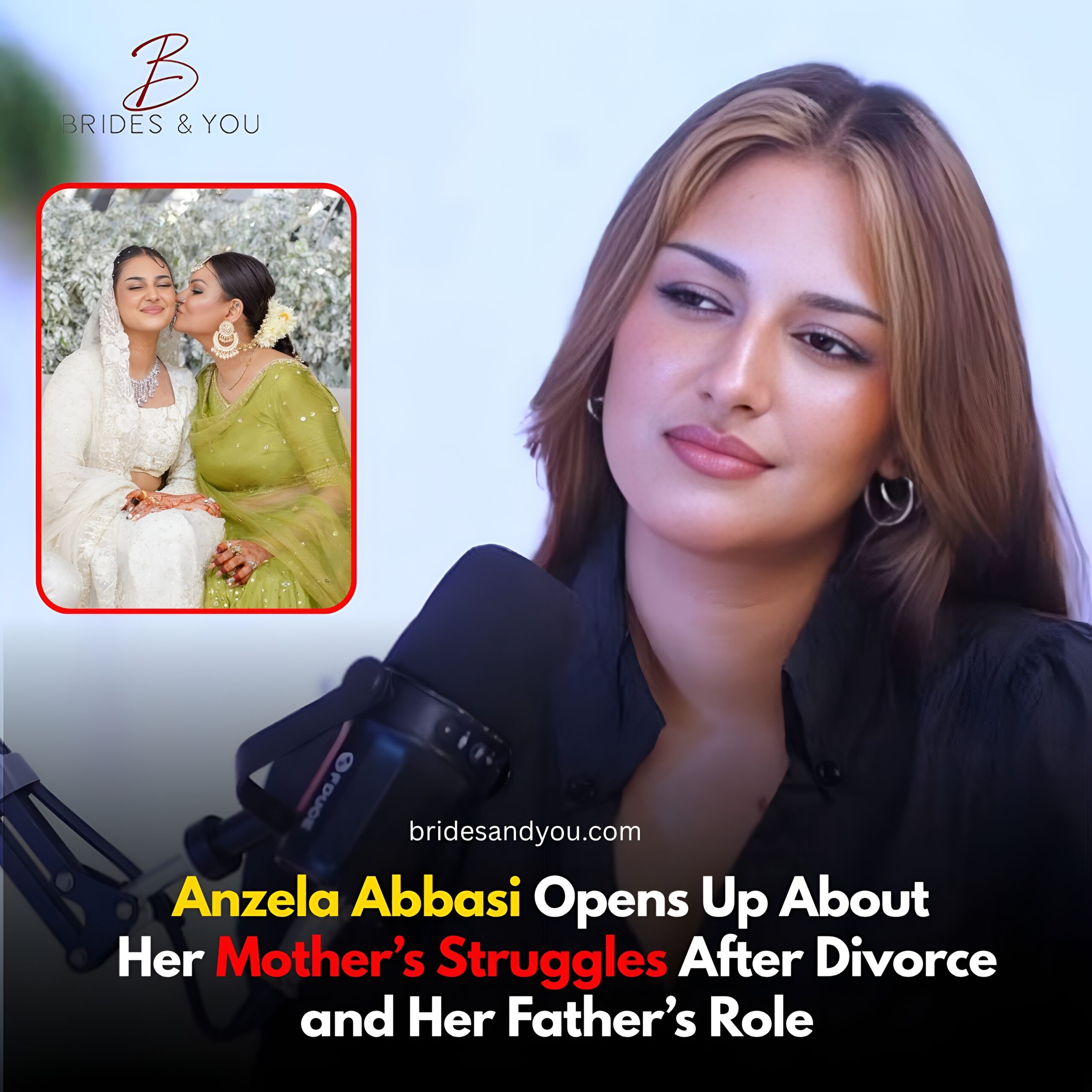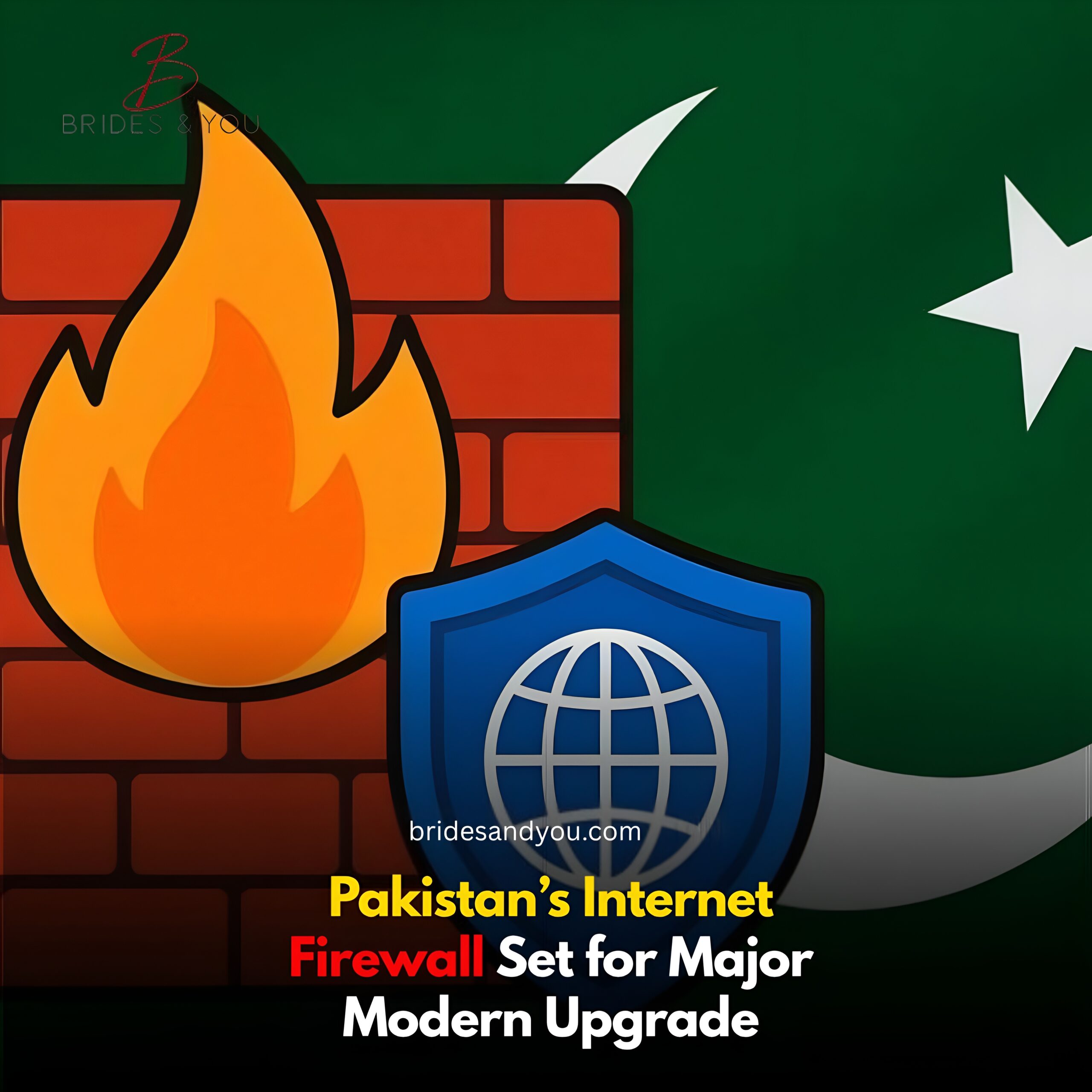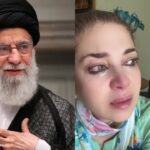Now Reading: Maulana Tariq Jamil’s Son Criticizes Dr Nabiha Ali Khan Over Her Wedding Celebration
-
01
Maulana Tariq Jamil’s Son Criticizes Dr Nabiha Ali Khan Over Her Wedding Celebration
Maulana Tariq Jamil’s Son Criticizes Dr Nabiha Ali Khan Over Her Wedding Celebration

The recent wedding of Dr Nabiha Ali Khan has sparked a heated debate across social media, not only because of her celebrity status but also due to the involvement of the respected Islamic scholar Maulana Tariq Jamil. The event, which took place at Maulana’s residence, drew attention for its unique mix of religious sanctity and modern celebration something many netizens found controversial.
After the event, Maulana Tariq Jamil’s son, Maulana Yousaf Jamil, stepped forward to clarify and criticize certain aspects of the ceremony, emphasizing respect for religious settings and traditions.

Who Is Dr Nabiha Ali Khan?
Dr Nabiha Ali Khan is a well-known psychologist, television personality, and social activist. She has gained attention for her strong opinions on men’s rights, women’s behavior in society, and the balance of gender roles. Her straightforward comments often make headlines and spark conversations online.
Recently, Dr Nabiha entered a new chapter of her life by marrying her long-time friend Haris Khokhar. Their Nikkah ceremony took place at Maulana Tariq Jamil’s residence a decision that surprised many, considering her public image and Maulana’s highly respected religious standing.
Social Media Backlash After the Wedding
As soon as the wedding videos surfaced online, the internet was quick to react. Many people expressed discomfort over the celebratory tone of the Nikkah event held at Maulana Tariq Jamil’s house.
Social media users shared clips showing influencers filming content, music playing, and a casual environment that seemed inconsistent with the religious nature of the venue. Some people questioned why Maulana Tariq Jamil was sitting next to Dr Nabiha during the ceremony, while others pointed out that the couple’s way of celebrating did not suit the atmosphere of his home.

Maulana Yousaf Jamil Speaks Out
To address the growing criticism, Maulana Tariq Jamil’s son, Maulana Yousaf Jamil, shared his views publicly. He defended his father’s character but also expressed his disappointment about how the event unfolded.
He stated that his father has solemnized thousands of Nikkahs over the years and that he treats all brides like his own daughters. “My father is not a young man of 30 anymore,” he said. “He is old now, and the brides are like his daughters that is how he sees them.”
However, Maulana Yousaf Jamil acknowledged that the way the wedding was celebrated was not appropriate. He mentioned that although Dr Nabiha wanted to celebrate her special day, she should have been more considerate, especially since the event took place in Maulana Tariq Jamil’s home, a space that represents religious sanctity.
He further revealed that he personally did not know Dr Nabiha Ali Khan before this Nikkah and saw her for the first time during the event. “My father is a kind-hearted person and never stops anyone,” he added. “But still, such celebrations singing, music, and recording videos should have been avoided in a scholar’s home.”
Public Reaction: Divided Opinions Online
After Maulana Yousaf Jamil’s statement, the internet continued to discuss the issue. While some people supported his stance, others felt that the matter had been blown out of proportion.
One user wrote, “Na mehram is na mehram at all ages. They should not have sat together.” Another commented, “Maulana has an aura and it should have been preserved first.” Yet another said, “Do not justify this.”
Others defended Dr Nabiha, saying that the criticism was harsh and that she had every right to celebrate her wedding her own way. Despite the mixed opinions, most agreed that religious figures and scholars must maintain boundaries that reflect their position in society.
A Reminder About Respect and Sensitivity
This entire incident serves as a reminder that public figures carry social responsibility. When an event involves someone as respected as Maulana Tariq Jamil, the expectations are naturally higher. Religious personalities are seen as symbols of Islamic values, and any act that seems to blur those boundaries becomes controversial.
At the same time, people should also remember that Nikkah is a joyous occasion, and balance between happiness and respect for religious customs is important. While Dr Nabiha Ali Khan’s wedding was meant to be a celebration, the setting Maulana’s home demanded a more modest and private approach.
Conclusion
The debate surrounding Dr Nabiha Ali Khan’s wedding and Maulana Tariq Jamil’s family’s response reflects a larger cultural conversation in Pakistan the fine line between personal freedom and societal expectations.
While Maulana Yousaf Jamil’s criticism highlights the need for respect in religious spaces, it also shows the compassion and understanding his father, Maulana Tariq Jamil, is known for. The incident will likely continue to fuel discussions about how public personalities should balance their faith, image, and personal choices.













